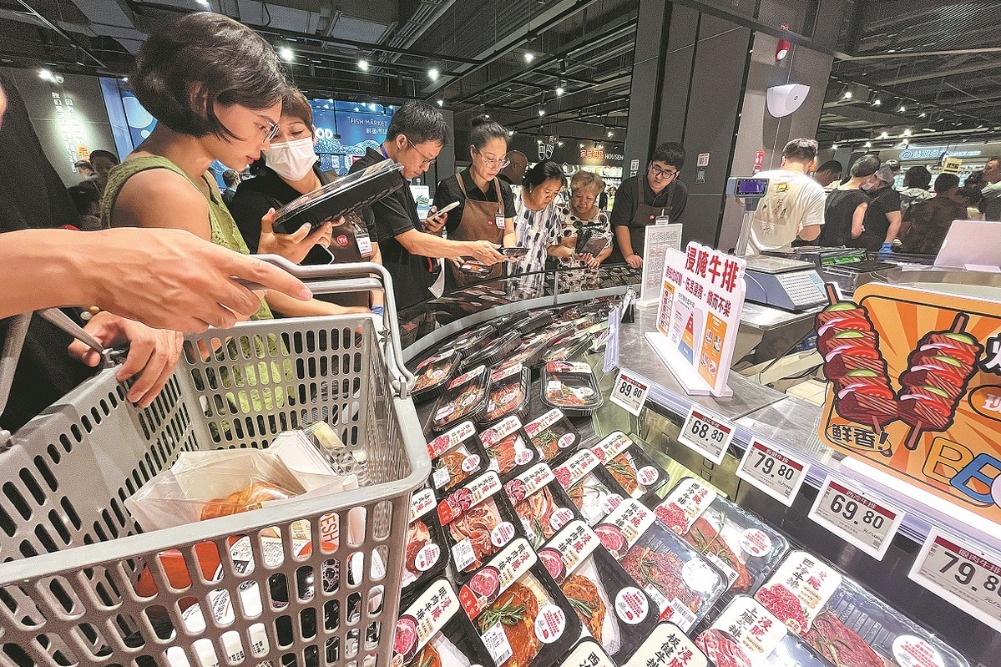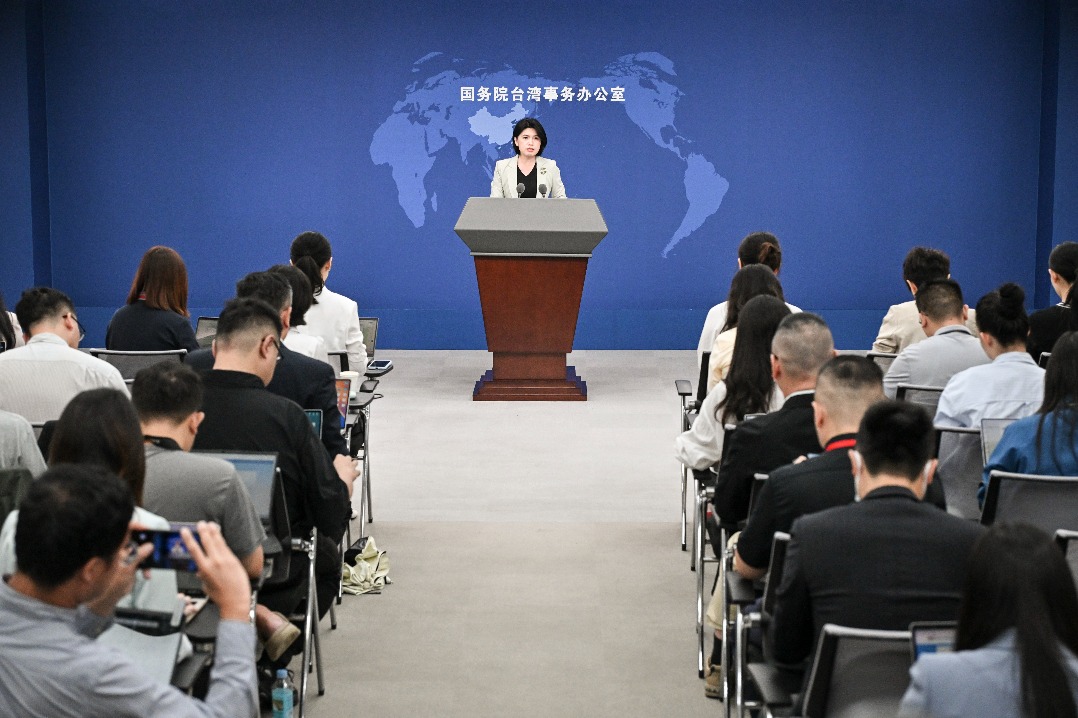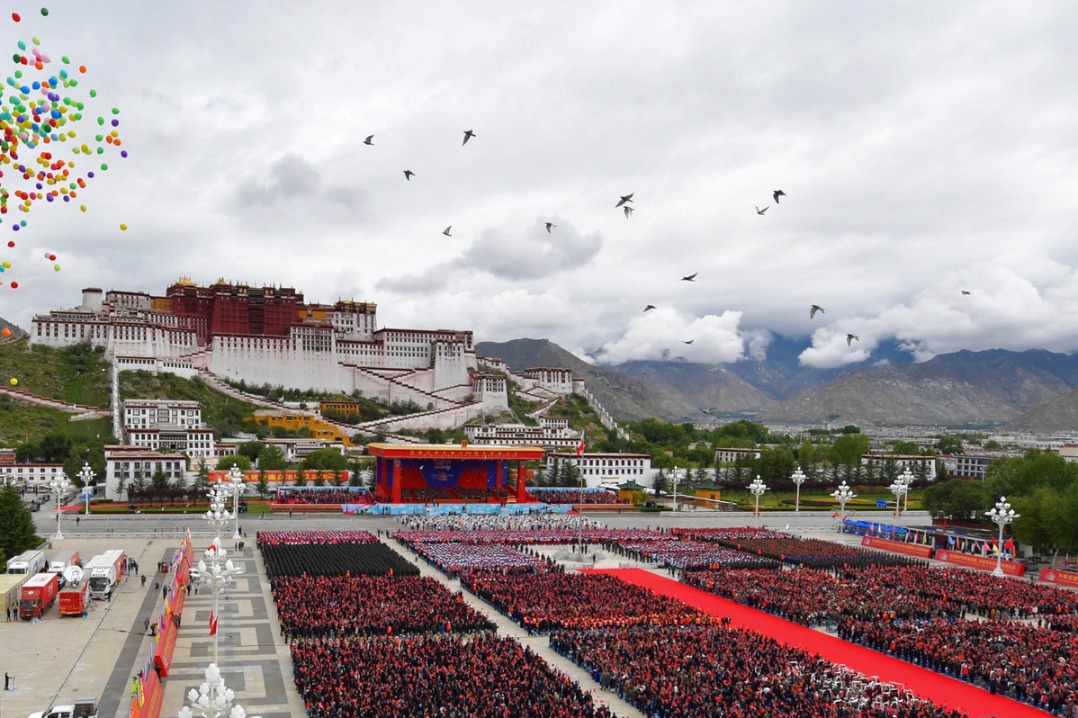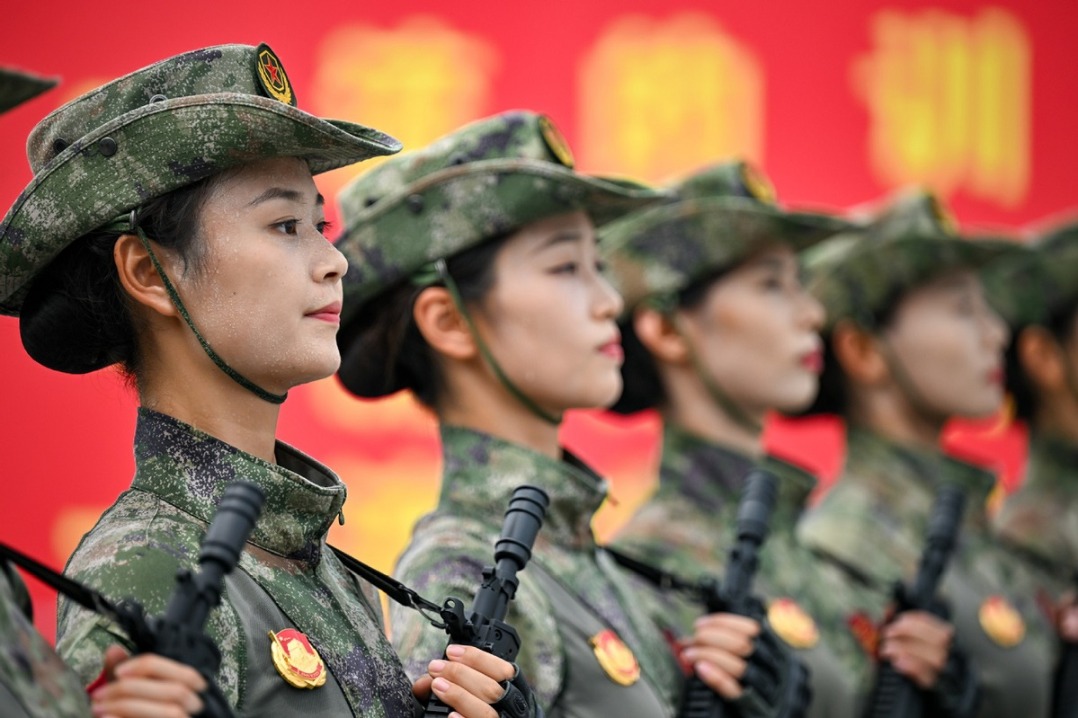Common ground


Building a shared future to advance the sustainable development of the SCO
The year 2025 has been designated the Year of Sustainable Development for the Shanghai Cooperation Organization. Although peace and development remain the prevailing themes of our times, global instability and uncertainty are on the rise.
In this context, the sustainable development of SCO member states faces three major challenges.
The first and foremost challenge is geopolitical conflict. On the security front, four SCO member states remain caught in conflicts, resulting in casualties and significant property losses.
The conflicts have heightened regional tensions, with spillover effects threatening the security and stability of SCO members, disrupting their sustainable socioeconomic development process.
Western sanctions, combined with the restructuring of global industrial and supply chains, have also placed a heavy strain on SCO member states' economies and livelihoods.
Conflicts involving the major energy exporters, Russia and Iran, have triggered drastic fluctuations in global energy prices. This has driven up costs for key importers such as China, India and Pakistan. For Pakistan, this has even resulted in energy shortages, affecting industrial production and household electricity supply.
Russia and Ukraine, both important grain exporters, have also seen their exports disrupted by their conflict, pushing up food prices in Central Asia and Pakistan, fueling inflation and undermining social stability.
Furthermore, supply chain disruptions have hindered trade among SCO members and conflicts have severely worsened the regional investment climate, reducing international capital inflows and slowing economic growth across the group.
The second major challenge lies in the transformation of economic development models.
The economies of SCO members generally rely heavily on resource development and primary product exports, with limited industrial diversification and weak capacity for high-value-added production. This traditional model is inherently at odds with sustainable development, reflected in tensions between resource exploitation and environmental protection, as well as the dilemma of balancing short-term economic growth with long-term sustainability.
The third major challenge is inadequate infrastructure, funding shortage and technology constraints.
For example, Kazakhstan and Uzbekistan have abundant solar and wind resources, but development has been slowed by outdated technology and a shortage of skilled workers. While cooperation with China has led to the successful implementation of landmark projects such as Kazakhstan's Zhanatas Wind Farm and Uzbekistan's 1-gigawatt photovoltaic project, local clean energy supply chains remain underdeveloped and operational capacity is limited.
Meanwhile, Kyrgyzstan and Tajikistan continue to rely heavily on hydropower, but aging facilities and low efficiency highlight the urgent need to diversify their energy mix. Most of SCO member states also face persistent financing shortfalls.
Beyond these common challenges, SCO members vary in their needs for sustainable development.
Russia, Kazakhstan and Iran, which rely greatly on energy exports, need to reduce this dependence by diversifying growth, improving energy efficiency, and expanding the use of renewable energy to mitigate environmental impacts and achieve green transition.
Kazakhstan, Uzbekistan and Tajikistan have fragile ecosystems. Glacial melting and drought cause annual losses of over $100 million on Tajikistan, while the Aral Sea crisis has accelerated soil salinization and desertification in Kazakhstan and Uzbekistan, threatening agriculture and food security.
These countries urgently require stronger environmental protections, better management of land and water resources, and more effective strategies to address soil degradation and water scarcity.
India, Pakistan and Tajikistan face prominent poverty issues. For them, priorities include ensuring food security, creating jobs and improving livelihoods.
While all SCO members stress the importance of the digital economy and technological development, their priorities differ. China, Russia, India and Kazakhstan seek to leverage technological progress to drive industrial upgrading and enhance national competitiveness, while others focus on using digital transformation to improve economic efficiency.
In light of these common challenges and differentiated needs, the SCO should establish a multi-level cooperation system to jointly promote sustainable development.
First, the SCO should strengthen regional connectivity, using "resilient connectivity" to hedge against the risks of conflict. One priority is promoting connectivity among energy infrastructure projects to enhance regional energy security.
Cooperation should be built on resource complementarity, guided by the goals of green transition, and supported by institutional mechanisms, technical collaboration, well-aligned standards and accessible financial services. Large-scale energy projects can create synergies across the entire supply chain, enhancing both energy security and long-term economic sustainability.
Another priority is creating emergency food corridors. Leveraging the China-Europe Railway Express and the China-Kyrgyzstan-Uzbekistan Railway, member states should facilitate the transport of food, streamline export procedures and build a regional food security network.
Moreover, it is recommended to promote the use of local currencies in trade settlements. This includes expanding interoperability between China's Cross-border Interbank Payment System and Russia's financial messaging system SPFS, as well as pilot programs for cross-border digital currency clearing, which could help reduce the impact of Western secondary sanctions on trade within the SCO.
Second, the SCO should support the transformation of economic models by using technology to drive industrial upgrading. Clean energy industries including wind and solar should be localized.
For example, building on major renewable energy projects in Kazakhstan and Uzbekistan, Chinese enterprises have established local production bases for key components such as wind turbine blades and solar modules. This would strengthen domestic manufacturing capacity and help upgrade local industrial chains.
Traditional energy sectors should also be modernized. China's carbon capture technologies, for instance, could assist Russia, Kazakhstan and others in improving oilfield recovery rates while lowering carbon intensity.
Digital technologies also offer great potential for modernizing agriculture. Since the establishment of the SCO Demonstration Base for Agricultural Technology Exchange and Training, China has sent 73 groups comprising over 190 experts, jointly established modern agricultural science and technology demonstration zones, and promoted over 110 high-quality crop varieties and efficient cultivation techniques.
In the future, China plans to promote advanced technologies such as internet of things-based smart irrigation systems and drought monitoring systems in SCO countries, as well as to build e-commerce platforms for agricultural products.
Third, the SCO should strengthen its institutional mechanisms, with Chinese initiatives offering potential models for innovation. Expanding financing channels is one important step. This includes establishing an SCO development bank, creating dedicated funds for projects such as Aral Sea rehabilitation and renewable energy development, and exploring the issuance of green bonds.
Another priority is training skilled talents. Widely recognized as a flagship of China's vocational education system, the Luban Workshop has already achieved tangible results in several SCO countries. The program has provided technical skills tailored to local economic needs, promoting the use of Chinese vocational training standards, equipment and teaching models across the region.
Guo Xiaoqiong is a research fellow at the Institute of Russian, Eastern European and Central Asian Studies at the Chinese Academy of Social Sciences. Cai Zhen is an associate research fellow at the Institute of Finance and Banking at the CASS. The authors contributed this article to China Watch, a think tank powered by China Daily. The views do not necessarily reflect those of China Daily.
Contact the editor at editor@chinawatch.cn.


































